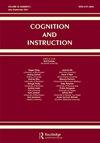Troubling Troubled Waters in Elementary Science Education: Politics, Ethics & Black Children’s Conceptions of Water [Justice] in the Era of Flint
IF 2.6
1区 心理学
Q2 PSYCHOLOGY, EDUCATIONAL
引用次数: 36
Abstract
Abstract The study of water as a K–12 science idea often divorces its properties from its deeply politicized history as a resource that has been limited, compromised, and intentionally withheld from nondominant communities. Although a robust body of scholarship has aptly critiqued decontextualized and depoliticized pedagogies and called for critical science-learning environments designed through the lens of equity, historicity, and power, more insight is needed into how children develop in relation to these design imperatives and within sociopolitical contexts where environmental issues pose a direct threat. We report select findings from a 2-year ethnographic project that investigated Black student agency in a school with a place-based design. Specifically, we hone in on the themes of water and water justice, which inspired the development of a socio-scientific unit enacted in two 4th-/5th-grade classrooms. This unit coincided with the initial spike in public awareness around the still unresolved water crisis in Flint, MI. For this article, we situate the “Flint” module as an illustrative case of justice-centered science pedagogy and analyze Black students’ disciplinary, affective, and sociopolitical understandings. We found that children’s meaning-making shifted from individualized accounts to critical, systemic explanations of environmental justice issues. The saliency of children's affective understandings throughout the unit was also captured. We expound on these findings and conclude with a discussion of implications, particularly as it relates to the ethics and politics of developing critical scientific capacity in young children to confront lived environmental human rights issues.基础科学教育中的困境:弗林特时代的政治、伦理与黑人儿童的水[正义]观念
摘要将水作为一种K–12科学理念进行研究,往往会将其特性与其作为一种资源而受到限制、妥协和故意不向非主流社区开放的深度政治化历史割裂开来。尽管一个强大的学术机构恰当地批评了去文本化和非政治化的教学法,并呼吁通过公平、历史性和权力的视角来设计批判性的科学学习环境,但还需要更多地了解儿童如何在这些设计要求和环境问题构成直接威胁的社会政治背景下发展。我们报告了一个为期2年的民族志项目的精选结果,该项目调查了一所基于地方设计的学校中的黑人学生代理机构。具体而言,我们深入研究了水和水正义的主题,这激发了在两个四年级/五年级教室中制定的社会科学单元的发展。本单元恰逢公众对密歇根州弗林特市仍未解决的水危机的最初认识激增。在本文中,我们将“弗林特”模块定位为以正义为中心的科学教育学的例证,并分析黑人学生的学科、情感和社会政治理解。我们发现,儿童的意义制造从个性化的叙述转向了对环境正义问题的批判性、系统性解释。整个单元中儿童情感理解的显著性也被捕捉到。我们阐述了这些发现,并在结束时讨论了其影响,特别是当它涉及到在幼儿中培养关键科学能力以应对生活环境人权问题的伦理和政治时。
本文章由计算机程序翻译,如有差异,请以英文原文为准。
求助全文
约1分钟内获得全文
求助全文
来源期刊

Cognition and Instruction
Multiple-
CiteScore
7.90
自引率
12.10%
发文量
22
期刊介绍:
Among education journals, Cognition and Instruction"s distinctive niche is rigorous study of foundational issues concerning the mental, socio-cultural, and mediational processes and conditions of learning and intellectual competence. For these purposes, both “cognition” and “instruction” must be interpreted broadly. The journal preferentially attends to the “how” of learning and intellectual practices. A balance of well-reasoned theory and careful and reflective empirical technique is typical.
 求助内容:
求助内容: 应助结果提醒方式:
应助结果提醒方式:


